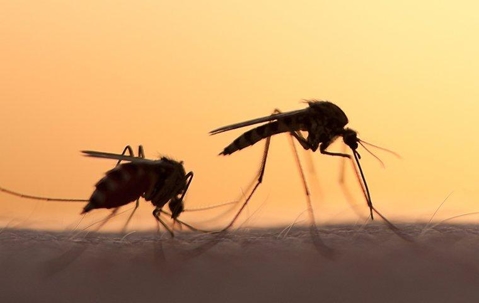Nothing will ruin your week quite like an itchy mosquito bite. The annoying urge to scratch happens at the most inconvenient times, interrupting your ability to focus in your daily life. Everyone gets bitten by a mosquito sooner or later, but as common as they may be, mosquito bites can sometimes lead to serious illness. If you get a mosquito bite in Plano, it’s important to know how to treat it.
About Mosquitoes
There are believed to be more than 3,000 species of mosquitoes in the world, varying in shape and color, but averaging about ½ inch in length. These parasitic insects need blood in order to breed and prefer to gather around bodies of still water like ponds, swamps, and puddles.
Mosquitoes are popularly considered to be the deadliest animal on the planet. It’s not sharks, or bears, or tigers responsible for the most human deaths per year, but tiny blood-sucking insects on a quest to reproduce. Mosquitoes are known to transmit a plethora of potentially fatal diseases including West Nile virus, EEE, malaria, and many more.
Only female mosquitoes feed on blood, while males feed on nectar and sap. It’s not the most wholesome thought, but blood is especially nutritious, containing essential amino acids that female mosquitoes need in order to successfully lay their eggs.
What Happens When A Mosquito Bites?
So, why do mosquitoes leave an itchy, swollen welt whenever they bite? And how exactly are they drinking blood, anyway? Thanks to millions of years of evolution, mosquitoes are equipped with a long tubular mouthpart called a proboscis. This appendage pierces through the skin like a straw.
When female mosquitoes bite, they also inject a small amount of saliva. It’s this saliva that causes an allergic reaction, resulting in itching and swelling at the site of the bite. Reactions to mosquito saliva vary from person to person and may also depend on the particular type of mosquito that bites you. Some folks may get large protruding welts, while others may only develop small bumps.
How To Treat Mosquito Bites
While mosquitoes are responsible for transmitting many serious diseases, most mosquito bites are not medically significant and can be treated at home. Prevention is always the best approach and the threat of mosquito-borne illness should always be taken seriously, but oftentimes, mosquito bites can be almost impossible to avoid.
Treating mosquito bites is easy with basic first aid and a quick trip to your local drug store.
- Wash up – Using soap and clean water, wash down the area of the bite.
- Reduce swelling – Apply an ice pack for at least 10 minutes to reduce swelling and repeat as needed.
- Stop the itch – Create a simple paste of one tablespoon baking soda and water and apply to the affected area. Alternately, head to your neighborhood drug store and purchase an anti-itch or antihistamine cream and follow the instructions on the package.
Excessive itching can lead to bleeding and scabbing around the bite, which can, in turn, lead to possible infection. Treating mosquito bites quickly and properly is crucial for not only your comfort but also your general health.
What To Do About Mosquitoes
If you or someone you know experiences symptoms like fever, nausea, or chills following an encounter with mosquitoes, seek medical attention immediately. For reliable protection from bloodsucking mosquitoes on your Plano property, trust the professionals at Adams Exterminating Company. Our mosquito control services consist of backpack misting treatment during peak mosquito season or year-round protection with our In2Care System mosquito traps.
For questions about mosquitoes in Plano or for assistance with a mosquito problem on your property, get in touch with us today!

